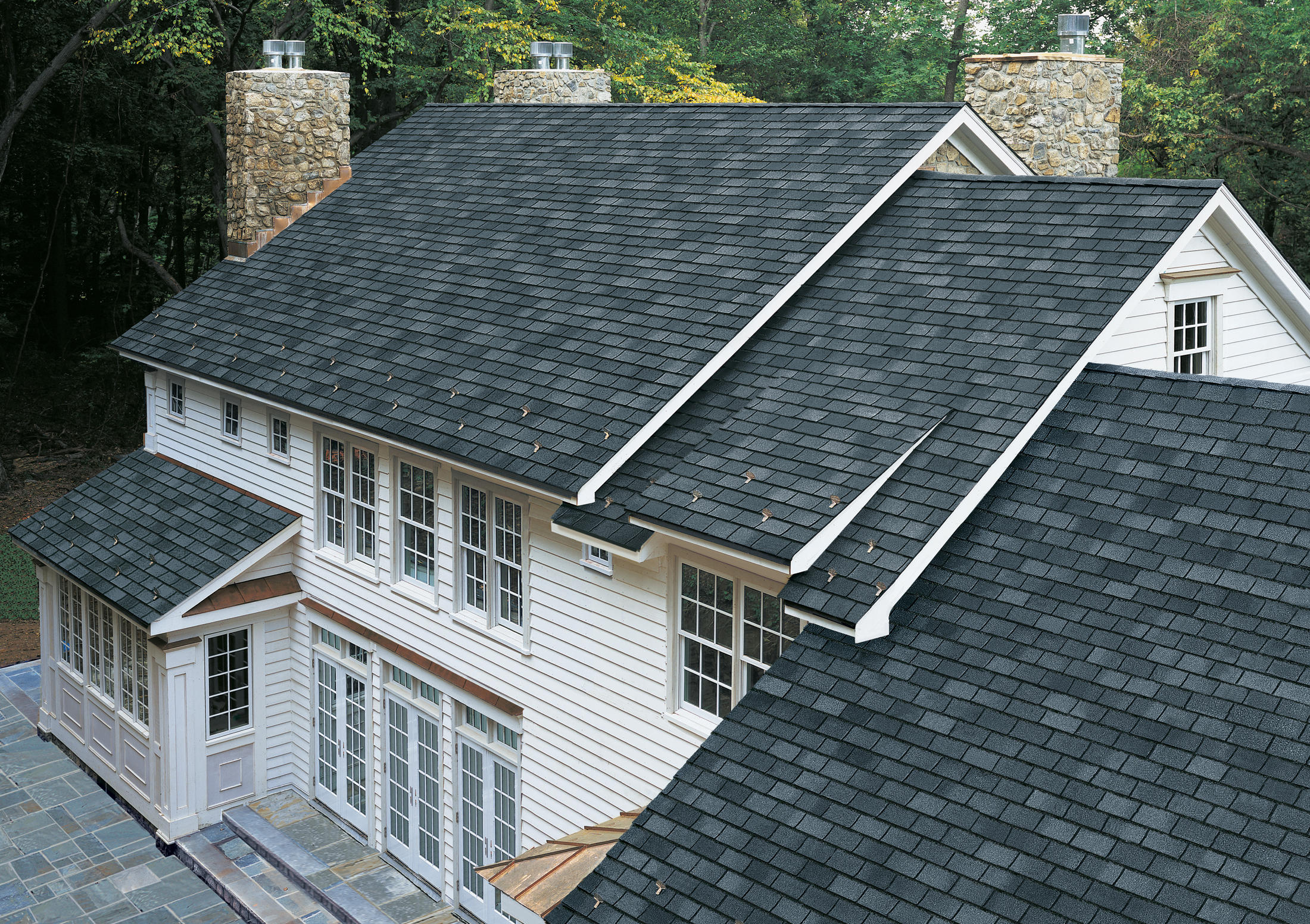Shingle roofing has been a popular choice for homeowners for many years, offering a combination of affordability, durability, and aesthetic appeal. Whether you’re building a new home or replacing an old roof, shingle roofing provides a reliable solution. In this guide, we’ll explore the top advantages of shingle roofing and why it may be the right choice for your home.
1. Affordable Initial Cost
One of the primary reasons homeowners choose shingle roofing is its affordability. Compared to other roofing materials like metal, tile, or slate, asphalt shingles are significantly less expensive. This makes them a budget-friendly option for homeowners who want a reliable roof without breaking the bank.
The cost-effectiveness of shingle roofing doesn’t only apply to the materials; the installation process is also relatively straightforward and fast, which can reduce labor costs. Whether you’re building a new home or replacing an old roof, the price of shingle roofing remains a significant advantage.
2. Variety of Styles and Colors
Shingle roofing comes in a wide variety of styles, colors, and textures, allowing homeowners to customize the look of their roof to match their personal preferences. From traditional three-tab shingles to architectural shingles with a more textured appearance, the options are endless.
Additionally, shingle roofing is available in a range of colors, from classic shades like black, brown, and gray to vibrant hues like red, blue, and green. This versatility allows you to select a style that complements your home’s exterior and enhances curb appeal.
3. Ease of Installation
Shingle roofing is known for its easy and efficient installation process. Because shingles are lightweight and come in uniform sizes, roofing contractors can quickly and easily lay them down. This ease of installation helps reduce labor costs and the overall timeline of your roofing project.
In many cases, shingle roofs can be installed over existing roofing material, eliminating the need for costly tear-offs and making the process even faster. This also means that homeowners can enjoy a new roof with minimal disruption to their daily lives.
4. Durability and Longevity
Despite their affordability, asphalt shingles are durable and can last for many years with proper maintenance. The typical lifespan of asphalt shingles is 20 to 30 years, but high-quality architectural shingles can last even longer—up to 40 years or more. Regular maintenance, such as cleaning debris off the roof and checking for damage, can help extend the life of your shingles.
In addition to their longevity, shingles are also designed to withstand harsh weather conditions. Many shingle manufacturers offer products that are wind-resistant, ensuring your roof can handle gusty winds without losing shingles or sustaining significant damage. Some asphalt shingles are also resistant to algae growth, which can be a problem in humid climates.
5. Energy Efficiency
Asphalt shingles can help improve the energy efficiency of your home. Some modern shingles come with reflective coatings that can help reduce the amount of heat absorbed by your roof. These reflective shingles, also known as cool roofing shingles, can help lower your home’s cooling costs in hot climates by reflecting more sunlight and absorbing less heat.
In colder climates, certain types of shingles are designed to insulate the home, helping to keep the interior warmer during winter. The combination of proper insulation and reflective properties can lead to noticeable energy savings over time.
6. Low Maintenance
Shingle roofing requires relatively little maintenance compared to other roofing materials. Periodic inspections are recommended to ensure that no shingles are cracked or missing, especially after a storm or severe weather. However, unlike other roofing materials that may require frequent repairs or treatments, asphalt shingles are fairly low-maintenance.
Additionally, many modern asphalt shingles are designed to be resistant to moss, algae, and fungus growth. This can help maintain the appearance of your roof and prevent the need for costly cleaning or treatment services.
7. Wide Availability
Shingle roofing is widely available, making it easy to find replacement shingles if any damage occurs. If you need to replace a few shingles after a storm or other event, your roofing contractor can usually find an exact match from a local supplier, ensuring your roof looks as good as new.
Because asphalt shingles are so common, they are also readily available in most home improvement stores, which means homeowners can purchase materials directly if they plan on doing some of the work themselves.
8. Increased Home Value
A well-installed shingle roof can increase the overall value of your home. When buyers are looking for a new home, they often look at the condition of the roof, and a new or recently replaced roof can be an attractive selling point. Shingle roofs are especially appealing because of their affordability and the fact that they are typically easy to maintain.
A new roof can also improve your home’s curb appeal, making it more attractive to potential buyers. Even if you don’t plan to sell your home soon, investing in a new shingle roof can pay off in the long run by enhancing your home’s aesthetic appeal and overall value.
9. Fire Resistance
Many asphalt shingles are designed with fire-resistant properties, offering an added layer of protection for your home. While no roof is completely fireproof, fire-resistant shingles can help slow the spread of flames if a fire were to occur, potentially buying time for emergency responders and minimizing damage to your property.
When choosing fire-resistant shingles, look for products that meet the Class A fire rating, which is the highest level of fire resistance. These shingles are made with materials that are designed to withstand heat and resist ignition.
10. Environmentally Friendly Options
While traditional asphalt shingles are not the most eco-friendly option due to their petroleum-based composition, there are environmentally friendly alternatives available. Some manufacturers produce shingles made from recycled materials, such as rubber, wood, or plastic. These eco-friendly options can help reduce the environmental impact of your roofing project while still providing the same benefits as traditional shingles.
Additionally, asphalt shingles can often be recycled at the end of their life cycle, preventing them from ending up in landfills. Many municipalities offer shingle recycling programs, allowing homeowners to dispose of their old roofing materials in an environmentally responsible way.
Conclusion
Shingle roofing offers a range of advantages for homeowners looking for a cost-effective, durable, and aesthetically pleasing roofing option. With a variety of styles, colors, and designs available, shingle roofing can complement any home’s exterior while providing reliable protection against the elements. Its affordability, low maintenance, and energy-efficient properties make it a popular choice for homeowners across the country. By choosing shingle roofing, you’re investing in a roof that will protect your home for years to come.
FAQs
How long do asphalt shingles last?
The lifespan of asphalt shingles depends on the quality of the shingles and how well they are maintained. On average, asphalt shingles last between 20 and 30 years. High-quality architectural shingles can last 40 years or more with proper care.
Are shingle roofs energy-efficient?
Yes, certain types of asphalt shingles, particularly reflective or cool roofing shingles, can improve the energy efficiency of your home. These shingles reflect more sunlight, reducing the amount of heat absorbed by your roof and lowering cooling costs.
How much does it cost to install a shingle roof?
The cost of installing a shingle roof can vary depending on factors such as the size of your roof, the type of shingles used, and your location. On average, homeowners can expect to pay between $5,000 and $10,000 for a new asphalt shingle roof, including labor and materials.
Can shingle roofing withstand heavy snow and ice?
Yes, asphalt shingles are designed to withstand a variety of weather conditions, including snow and ice. However, in regions with heavy snowfall, it’s essential to ensure that your roof has proper insulation and ventilation to prevent ice dams from forming.

